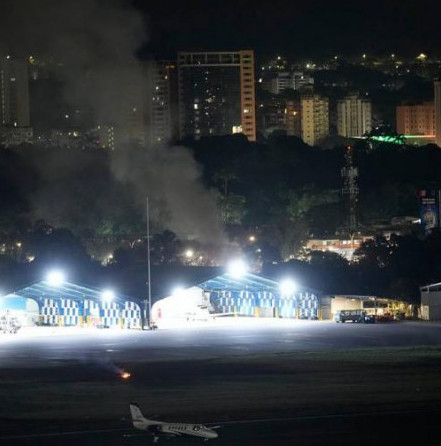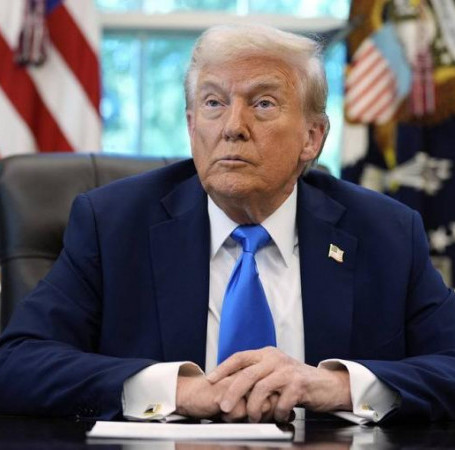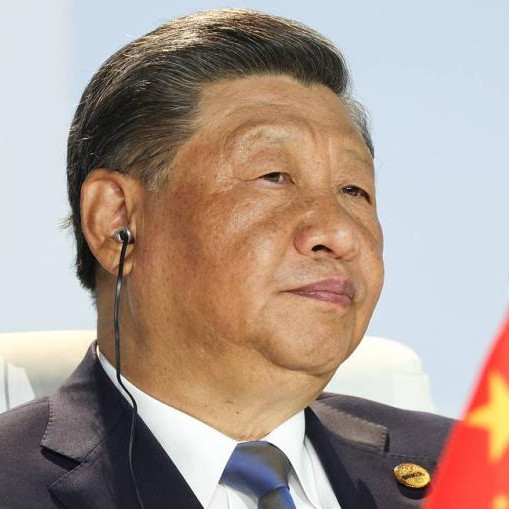The world community is unable to work out a single, united approach toward a Middle East settlement. During the weekend the UN Security Council failed to agree on a draft resolution for stopping hostilities in Lebanon between Israel's army and the Lebanese radical "Hezbollah" group.
As expected, the document drawn up by France and supported by the United States was not acceptable to Lebanon. The Lebanese side believes that the approval of the resolution in its present wording would legalize the occupation of Southern Lebanon by foreign troops.
The French document calls on the parties to the conflict to stop hostilities. But before that "Hezbollah" is to stop rocket shelling of Israeli territory. Only after that Israel would stop its military offensive operations. France has proposed that at a later stage a provisional UN peacekeeping force be deployed in Lebanon to monitor the ceasefire, ensure the return of refugees and provide humanitarian aid to the victimized population.
The Lebanese side is indignant over the document lacking any mention of an immediate withdrawal of Israeli troops from Lebanese territory. Besides, the French "peaceful plan" proposes military action by Israel, should "Hezbollah" resume shelling of Israeli territory. Russia and China have supported Lebanon's stance on an unconditional ceasefire.
The lack of an agreed UN Security Council resolution on Lebanon does not allow a prompt solution of another pressing task, which is setting up an international peacekeeping force under the auspices of that authoritative organization. The task is made much more complicated by the UN Security Council being set on considering a new resolution only after Israel and Lebanon have unconditionally accepted the principles of peaceful settlement as proposed by the international community. However, that way out of the crisis seems rather problematic, as at the moment neither Israel nor "Hezbollah" are ready for a compromise.
What is more, the opposing sides are heading for an escalation of the conflict – Israel is increasingly penetrating into Lebanese territory and intensifying its bombing raids against Lebanese cities, while "Hezbollah" is intensifying its rocket shelling of Israeli settlements. Since the start of hostilities, the Lebanese side has already lost about 1,000 human lives, and Israel about 100.
The war in Southern Lebanon has stirred fresh passions in that unstable region. Syria has put its armed forces on red alert, called up reservists and is shooting at Israeli pilotless reconnaissance planes. Iran is making belligerent anti-Israeli statements. An upsurge of violence against foreign troops, peacekeepers included, has been registered in Iraq and Afghanistan.
We asked president of ROO "Information Civilization – XXI Century" public fund Alexander Starunsky, Ph.D. (psychology), to comment on the situation in the Middle East. In his opinion, Israel's aggression in Southern Lebanon is threatening to grow from a local armed conflict into a regional war, inevitably involving Syria and Iran.
"These countries are already speaking about a 'third force' being actively involved in the conflict – from the very first day of the aggression US war technologies and US money are fighting on Israel's side. Both Damascus and Tehran are convinced that it is Washington who is blocking the process of peaceful settlement in the Middle East, using Israel as a tool of its imperial policies. Thus, an ideological covering for the escalation of the conflict is in place. Now political solutions are in the order of the day", says A. Starunsky.
At the first stage of the conflict, Syria and Iran may limit themselves to moral, financial and logistical support for "Hezbollah". However, that would not last long, believes the expert.
"The problem is that 'Hezbollah' is not a banal terrorist organization, as Washington and Tel-Aviv are trying to present it. It is a serious and self-dependent political force, practically a shadow government in Lebanon. If it were not so, Israel would not be using all its political and military power against 'Hezbollah' and its followers. You cannot speak to 'Hezbollah' from the position of crude dictate and demand unilateral concessions. It deserves serious treatment and recognition of its political role in the region. It is a player in its own right on the political scene of the Middle East", asserts A. Starunsky.
The problem lies largely in Israel using excessive might against 'Hezbollah', thus giving birth to an asymmetric response, believes the political scientist. "Violence always generates new violence. In the East, historical memory is traditionally very deep-rooted. Once shed, blood evokes revenge for centuries. With its brusque actions, Israel has driven the situation to a still deeper impasse. It seems, emotions prevailed over sober strategic calculations in Tel-Aviv's military planning", emphasized A. Starunsky.
"I am certain that Israel's excessive use of force and the invasion of sovereign Lebanon have in fact opened a new page in the world arms race. Now nobody will be able to persuade Iran to give up its nuclear program as a guarantee of its sovereignty and a deterrent factor. Radical Islamist groups and international terrorist organizations are also likely to intensify their efforts in attempting to get nuclear technologies or their products, such as the 'dirty bomb'. The echo of the Lebanese war will reverberate in the Korean Peninsula as well. The United States can hardly be expected to mutely observe its adversaries arming themselves up. A serious blow has been dealt to the world's strategic stability", sums up A. Starunsky.
As expected, the document drawn up by France and supported by the United States was not acceptable to Lebanon. The Lebanese side believes that the approval of the resolution in its present wording would legalize the occupation of Southern Lebanon by foreign troops.
The French document calls on the parties to the conflict to stop hostilities. But before that "Hezbollah" is to stop rocket shelling of Israeli territory. Only after that Israel would stop its military offensive operations. France has proposed that at a later stage a provisional UN peacekeeping force be deployed in Lebanon to monitor the ceasefire, ensure the return of refugees and provide humanitarian aid to the victimized population.
The Lebanese side is indignant over the document lacking any mention of an immediate withdrawal of Israeli troops from Lebanese territory. Besides, the French "peaceful plan" proposes military action by Israel, should "Hezbollah" resume shelling of Israeli territory. Russia and China have supported Lebanon's stance on an unconditional ceasefire.
The lack of an agreed UN Security Council resolution on Lebanon does not allow a prompt solution of another pressing task, which is setting up an international peacekeeping force under the auspices of that authoritative organization. The task is made much more complicated by the UN Security Council being set on considering a new resolution only after Israel and Lebanon have unconditionally accepted the principles of peaceful settlement as proposed by the international community. However, that way out of the crisis seems rather problematic, as at the moment neither Israel nor "Hezbollah" are ready for a compromise.
What is more, the opposing sides are heading for an escalation of the conflict – Israel is increasingly penetrating into Lebanese territory and intensifying its bombing raids against Lebanese cities, while "Hezbollah" is intensifying its rocket shelling of Israeli settlements. Since the start of hostilities, the Lebanese side has already lost about 1,000 human lives, and Israel about 100.
The war in Southern Lebanon has stirred fresh passions in that unstable region. Syria has put its armed forces on red alert, called up reservists and is shooting at Israeli pilotless reconnaissance planes. Iran is making belligerent anti-Israeli statements. An upsurge of violence against foreign troops, peacekeepers included, has been registered in Iraq and Afghanistan.
We asked president of ROO "Information Civilization – XXI Century" public fund Alexander Starunsky, Ph.D. (psychology), to comment on the situation in the Middle East. In his opinion, Israel's aggression in Southern Lebanon is threatening to grow from a local armed conflict into a regional war, inevitably involving Syria and Iran.
"These countries are already speaking about a 'third force' being actively involved in the conflict – from the very first day of the aggression US war technologies and US money are fighting on Israel's side. Both Damascus and Tehran are convinced that it is Washington who is blocking the process of peaceful settlement in the Middle East, using Israel as a tool of its imperial policies. Thus, an ideological covering for the escalation of the conflict is in place. Now political solutions are in the order of the day", says A. Starunsky.
At the first stage of the conflict, Syria and Iran may limit themselves to moral, financial and logistical support for "Hezbollah". However, that would not last long, believes the expert.
"The problem is that 'Hezbollah' is not a banal terrorist organization, as Washington and Tel-Aviv are trying to present it. It is a serious and self-dependent political force, practically a shadow government in Lebanon. If it were not so, Israel would not be using all its political and military power against 'Hezbollah' and its followers. You cannot speak to 'Hezbollah' from the position of crude dictate and demand unilateral concessions. It deserves serious treatment and recognition of its political role in the region. It is a player in its own right on the political scene of the Middle East", asserts A. Starunsky.
The problem lies largely in Israel using excessive might against 'Hezbollah', thus giving birth to an asymmetric response, believes the political scientist. "Violence always generates new violence. In the East, historical memory is traditionally very deep-rooted. Once shed, blood evokes revenge for centuries. With its brusque actions, Israel has driven the situation to a still deeper impasse. It seems, emotions prevailed over sober strategic calculations in Tel-Aviv's military planning", emphasized A. Starunsky.
"I am certain that Israel's excessive use of force and the invasion of sovereign Lebanon have in fact opened a new page in the world arms race. Now nobody will be able to persuade Iran to give up its nuclear program as a guarantee of its sovereignty and a deterrent factor. Radical Islamist groups and international terrorist organizations are also likely to intensify their efforts in attempting to get nuclear technologies or their products, such as the 'dirty bomb'. The echo of the Lebanese war will reverberate in the Korean Peninsula as well. The United States can hardly be expected to mutely observe its adversaries arming themselves up. A serious blow has been dealt to the world's strategic stability", sums up A. Starunsky.



